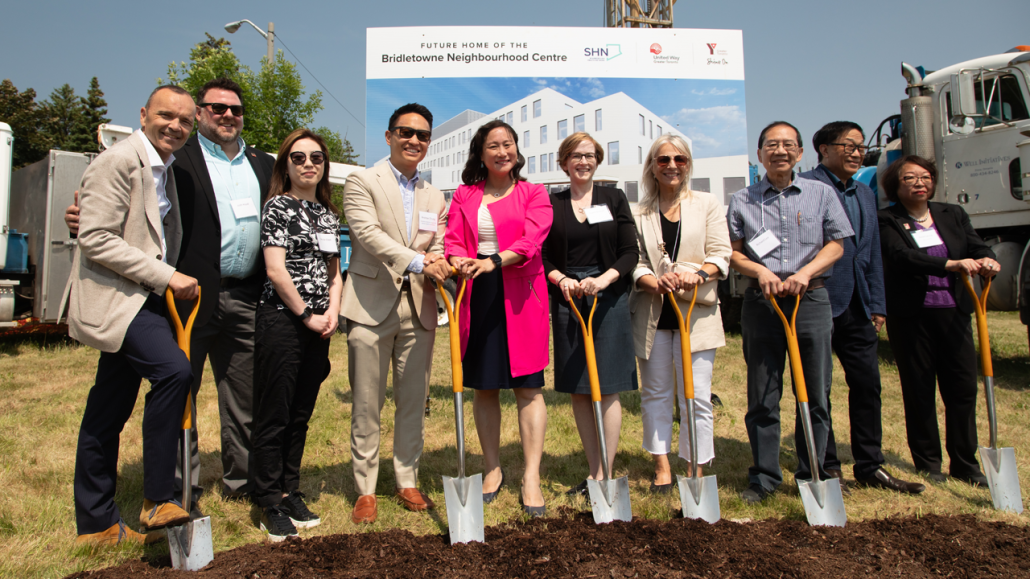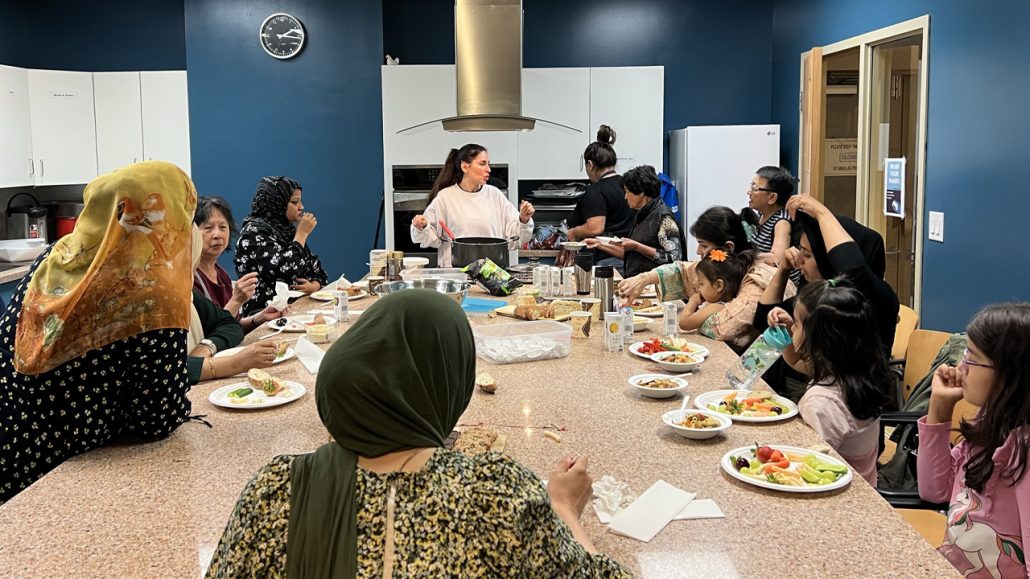
United Way’s 10 Community Hubs make it easy for people to access services and create positive change in their neighbourhood
Community Hubs are a cornerstone of United Way Greater Toronto’s neighbourhood work. Since 2009, United Way has been bringing community leaders, residents, service providers and others together to create these vital community centres across our region.
We see Community Hubs as an integral part of a strong neighbourhood, a place where people can go to access what they need in good times and in challenging ones.
There have been 4.5 million visits to 10 United Way-supported Hubs since they first opened their doors. Let’s learn more about them!
What is a Community Hub?
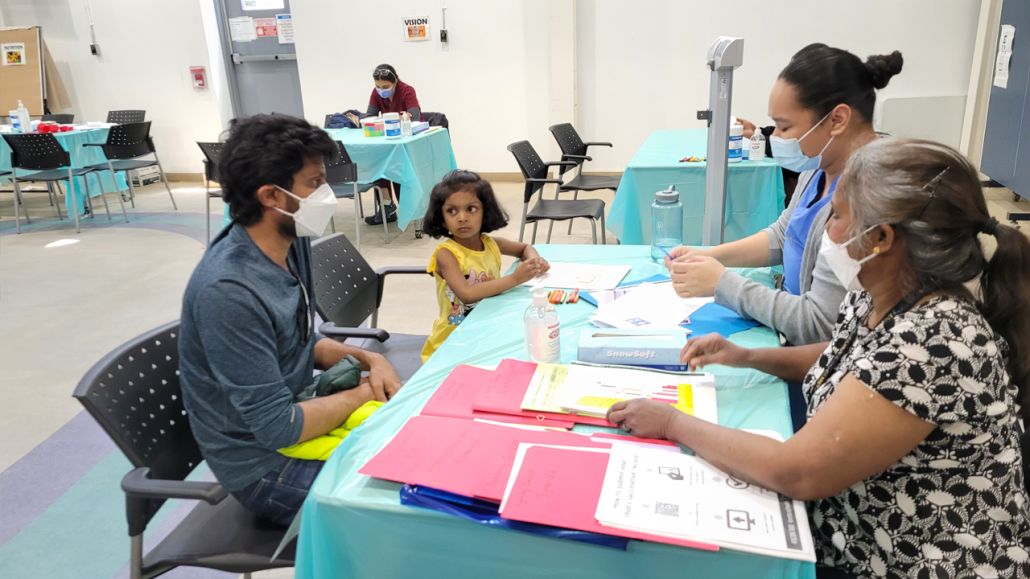
A Community Hub brings social services, healthcare, recreational spaces and sometimes even government services together in one location. A “one-stop shop”, Hubs make it easy for our neighbours in historically underserved communities to access after-school programs, social clubs, community kitchens, settlement support, employment programs and so much more.
Hubs also bring residents together to develop local solutions to the issues facing their neighbourhood, promoting civic engagement and a sense of belonging.
In short, Community Hubs are a place where residents come together — for support, collaboration and resources. This is a place where newcomers can meet their neighbours, where kids can go after school to play, where seniors make new friends and where families struggling to make ends meet can find some relief. Something for everyone.
How do Hubs meet neighbourhood needs?
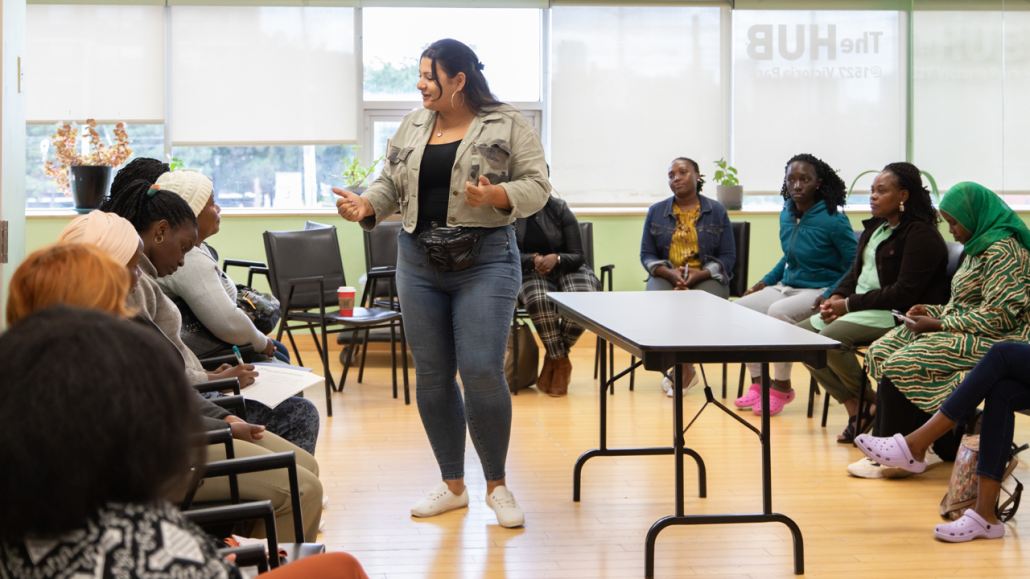
People deserve easy access to the programs and services they rely on in their neighbourhoods. Hubs provide that by centralizing resources in one building that’s just a walk or TTC ride away. Most importantly, Hubs customize services to meet the unique needs of the people they serve.
Hubs that are in neighbourhoods welcoming newcomers may offer settlement services, including counselling, resources and interpreter services. They can offer youth programming geared to newcomer and immigrant youth; a child and family drop-in centre; job training; resident engagement and volunteer opportunities.
Hubs offer another crucial resource too: community space. That can look like basketball courts, a public pool or even meeting rooms for resident groups looking for a space to gather. At the Victoria Park Hub, a kitchen was offered to a Black-owned local business that was struggling to find facilities during the pandemic. This is what Community Hubs can do: bring their community access to flexible and accessible space and help respond to a community’s ongoing needs.
And what does this support feel like for the people that utilize this important community resource? Nafisa, a client at Rexdale Community Hub who was connected to their health centre, food pantry and eventually found a job with one of their programs, says:
“It saved my life. I was struggling with my mental health. . .[it] not only gave me financial support, but it also brought me out of my isolation, my anxiety and I am grateful.”
Hubs don’t just respond to the needs of the community, they anchor it, supporting hopes and dreams for the future, driven by engaged individuals and community groups. And more importantly, they are there for residents when they need them most.
How do Hubs work with community?
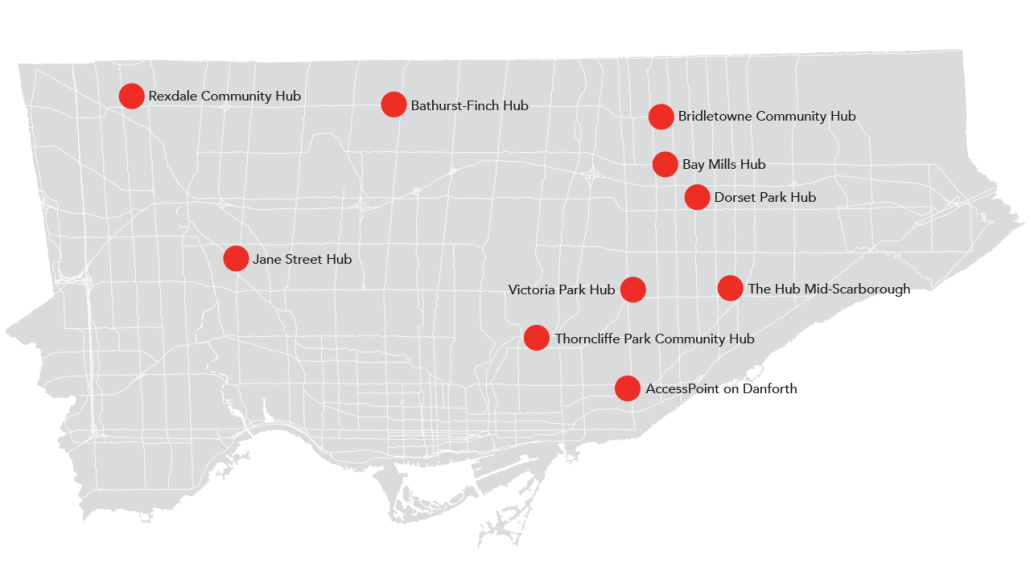
To make sure they’re meeting the needs of the communities they operate in, Hubs rely on the input and leadership of residents. Residents are involved in decision making and service planning, bringing them into new kinds of relationships with service providers and giving them influence over the support provided.
This ensures that Hubs develop solutions that work best for the people they serve, and this collaboration also fosters social capital — our sense of community, civic trust and social networks — which is important in good times and essential during times of crisis.
Let’s look at Rexdale Community Hub’s work around food insecurity. It is a great example of how residents are engaged in the conversation — and in the solutions.
“The hub brings all these great things to the community due to this infrastructure that United Way created,” says Amra, the Hub’s Executive Director. “We engage everyone in the community and build capacity through initiatives like the Food Access Committee. It’s not just us as an organization talking about food security, everyone in the community is talking about it. What the issue is and how the issue should be addressed.”
Engaging with residents often brings about the most innovative ideas. Now, this Community Hub is exploring other ways to improve food security in the neighbourhood, like creating an affordable community grocery store, organic farm or indoor greenhouse.
What’s next for Community Hubs?
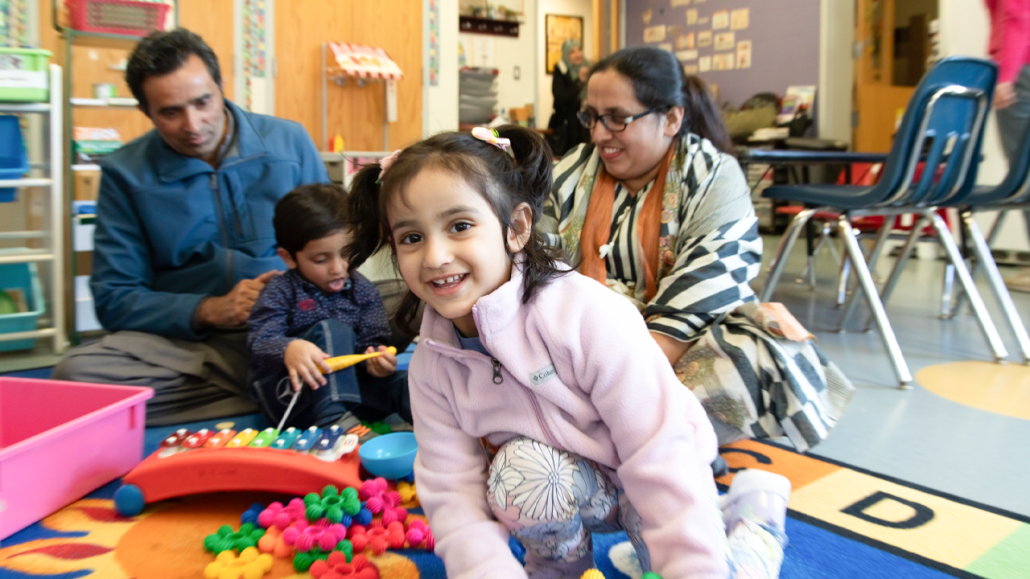
As the GTA undergoes extraordinary change in the coming years, communities will need places that can meet the needs of a growing region: families, newcomers, seniors, youth and everyone that makes the GTA their home. That’s why United Way plans to grow our Hub network.
Hubs have been on the ground, getting things done, for decades. During the pandemic, Hubs kept our neighbourhoods healthy by sending vaccine ambassadors to knock on doors. They have hosted emergency food programs during the cost-of-living crisis. They are tried-and-tested, which is why we are scaling them.
People continue to need community to navigate challenging times, like the times we are in right now. Amid the affordability, housing and food insecurity crises affecting our region, we know that Hubs can be a lifesaver.
We’re excited to bring more Community Hubs to neighbourhoods across the GTA. This is ambitious work, but we’re optimistic as ground has broken on the latest one, Bridletowne’s Community Hub, a project inspired by Scarborough residents and sure to be an essential part of the community.
Across the region, neighbourhoods are transforming. To do that in a way that doesn’t leave people behind will take collaboration, leadership and investment. It takes time to create conditions for strong neighbourhoods, but Community Hubs are an essential part of that — centred on equity, built for their communities and flexible enough to adapt to the needs of the people that live there.
